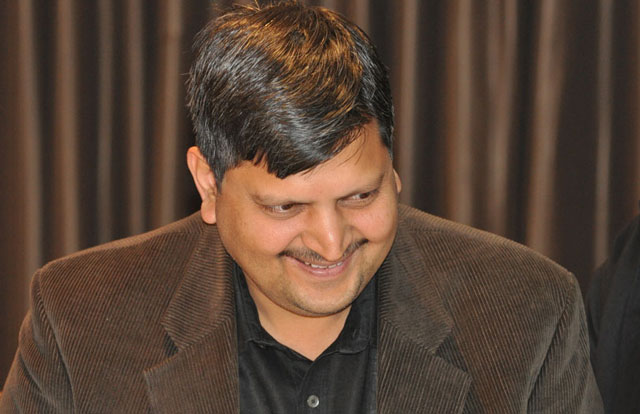
So, the Gupta brothers have called South Africa quits.
Although it is not really surprising, as virtually everyone but the president and his family have taken a hostile stance against the family, the swiftness of their departure has raised a few eyebrows.
The decision to search for new opportunities in the Middle East is indicative that the family has accepted that their future participation in South Africa has hit a cul de sac.
It probably was not political pressure that resulted in their decision to depart. Although there was massive pressure on the Guptas, following revelations that the family had such a hold on the president that they could influence the appointment of cabinet ministers, the final nail in their South African coffin seems to be have been the reaction from corporate South Africa.
The Gupta operations were brought to an abrupt halt after several commercial banks merely closed their respective business’ bank accounts. Some firms even publicly justified their decision to sever ties based on their seeing significant risk of association. The firms known to have severed ties include Barclays Africa, First National Bank, KPMG and Sasfin.
The Guptas’ response was swift.
Atul Gupta and Varun Gupta resigned as directors from Oakbay Resources last week. Duduzane Zuma, the president’s son, also resigned as a director from Oakbay subsidiary Shiva Uranium.
It now appears that hours later they boarded to Dubai and waved South Africa goodbye.
It is clear that the brothers had undergone a quick change of heart. On 23 March, Atul Gupta still proudly proclaimed in an interview with the Times of India: “We have no intention of leaving South Africa. We love this country and it is our home. We believe people will sooner or later understand the anticompetitive political campaign going on against us intended to marginalise our businesses. We have no intention of leaving South Africa.”
The Guptas responded on Sunday to an invitation to comment. Victoria Geoghegan of Bell Pottinger said on behalf of Oakbay: “The Gupta family has no further comment at this time, and will not be detailing the individual movements of family members. The onus is now on the business establishment and the banks to do the right thing.”

Corporate South Africa
There could not have been a more aggressive or brutal reaction from the banks than to close the family’s business bank accounts. This is unprecedented in South Africa and, as any business owner would know, it renders an operation dead in the water.
The big question is why the banks cut the cord. Banks are not always overly proactive to close accounts and for Barclays Africa and FNB to close the Gupta accounts within a few months of each other is telling. It almost seems as if this decision was orchestrated.
Banks are subject to strict regulations to act on and report suspicious and/or potential illegal activity in bank accounts. It is therefore critical for banks to provide some clarity on their respective decisions. The reasoning behind the decisions may also have had a bearing on why the Guptas left South Africa in such a hurry.
Even though there are many allegations and rumours, the Guptas have not been found guilty of any crime. The Hawks also don’t appear to be busy with an investigation.
What now for the Gupta empire?
The developments of the past few weeks have left the various Gupta businesses in a very peculiar position. The actions of the banks and KPMG have given the operations leper status.
It is not only the case for the existing businesses, but also the ambitious expansion plans in the fields of nuclear and coal. Their ally, Zuma, is on the ropes. It seems as if Zuma’s alleged attempts to channel government business their way, coupled with the small matter of his unconstitutional behaviour, has seriously dented his authority and may put an end to his presidency.
The Guptas apparent attempt to influence the appointment of ministers is central to recent developments. Although the Guptas seemed to have succeeded in the appointment of Mosebenzi Zwane as minister of mining resources, they failed at the most important hurdle of them all — the capture of national treasury. If Des van Rooyen was the minister of finance today, the current narrative would probably have been completely different.

Gupta businesses
Although the Guptas have resigned as directors and departed from South African shores, the family still remains the dominant shareholders in their various businesses. Their continued involvement in these businesses will keep dark clouds of suspicion over them. It will therefore be interesting to see whether they sell these shares in the near future.
It may also be safe to say that the Guptas will not receive the massive government contracts they vied for while Zuma was untouchable. (The constitutional court judgement could not have come at a worse time for the family.)
This is certainly the case for prospective supply contracts for uranium and coal.
The Guptas have the following business interests:
Sahara Computers
This business was founded in 1994 and is a wholesale supplier of computer and related products in South Africa. This business also sponsors several sports teams and has naming rights on several sports stadiums such as Sahara Stadium Kingsmead.
Mining assets
The family’s mining assets are housed in Oakbay Resources & Energy. It was listed on the JSE in November 2014 and has a market capitalisation of approximately R19bn, although its shares trade very infrequently. The Guptas hold 80% of their roughly 93% stake in the company through a holding company called Oakbay Investments.
Oakbay Resources & Energy’s main asset is the Shiva gold and uranium mine in which it has a 74% interest. Shiva acquired the business of Tegeta Exploration and Resources in December 2015, which also owns coal mines that supply Eskom with coal, and which is in the process of acquiring the Optimum coal mine from Glencore.
In 2010, the Gupta family and Duduzane Zuma tried to acquire a 21,4% mining right in Kumba’s Sishen mine. The family owned the company Imperial Crown Trading (ICT) which applied for this mining right. The case went all the way to the constitutional court where it was found that ICT did not qualify for ownership.
Another controversial mining deal is Tegeta. Tegeta is in the process of acquiring the Optimum coal mine from Glencore for R2,15bn and it is alleged that mining minister Zwane facilitated this transaction. The profitable operation of the Optimum mine would depend on a favourable supply contract from Eskom. Duduzane Zuma owns 30% of Tegeta.
The Gupta family also has a large uranium mine. There are some allegations that Nhlanhla Nene was fired because he resisted such an expensive nuclear commitment, which would have benefited the Guptas.
Defence contractor
The Guptas also owns VR Laser Services, which is a partner of Denel’s Asian subsidiary Denel Asia. Denel Asia is set to market Denel’s defence products in the region. Duduzane Zuma also owns 25% of VR Laser Services.
Media
The Guptas also own The New Age newspaper and the news channel ANN7. The New Age has been criticised for hosting a series of breakfast events which are sponsored by government departments.
- This article was originally published on Moneyweb and is used here with permission




